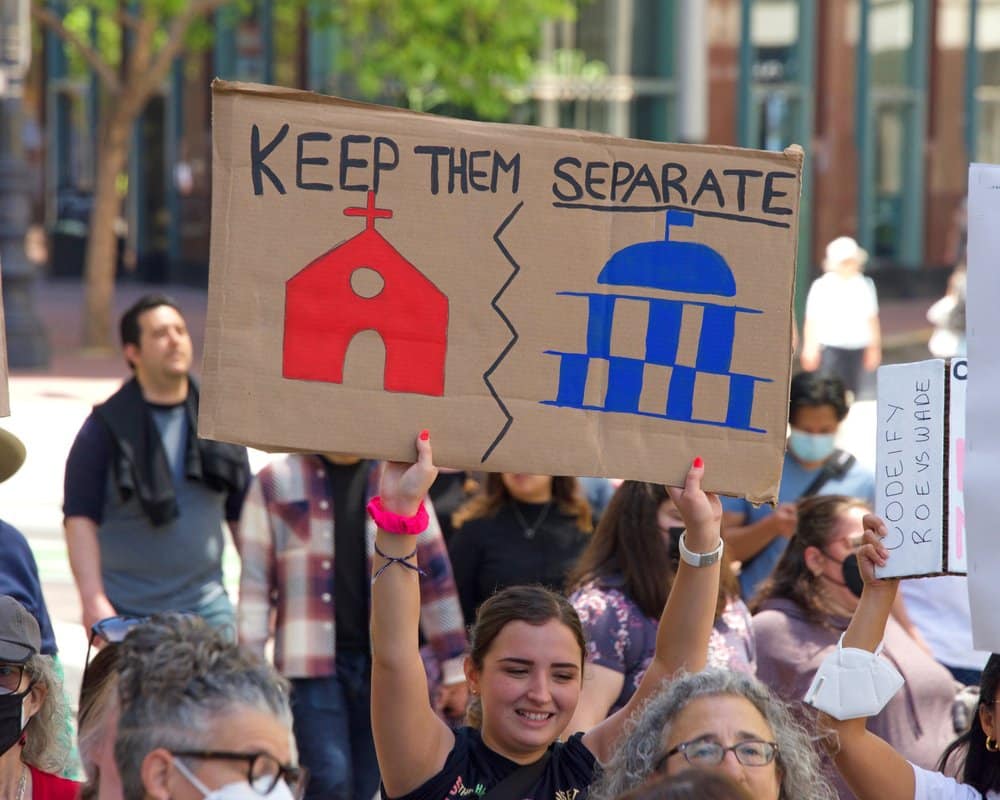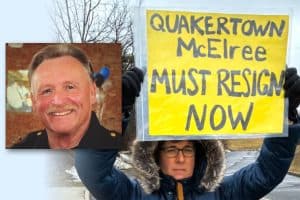We’re continuing to examine the link between church-state separation and democracy today with a look at a federal law known as the Johnson Amendment.
As we’ve noted on this blog previously, this law, passed in 1954 and championed by then-U.S. Sen. Lyndon B. Johnson (D-Texas), bars tax-exempt groups that hold 501(c)(3) status from intervening in elections by endorsing or opposing candidates for public office. Secular non-profits and houses of worship must follow this law.
Most houses of worship have no problem abiding by the Johnson Amendment, but a minority, often prodded by Christian Nationalist legal groups, are resisting the law. They’ve even filed a lawsuit in federal court in an attempt to overturn it.
Why America needs the Johnson Amendment
This is misguided. There are many reasons why America needs the Johnson Amendment. Here are five:
The Johnson Amendment keeps houses of worship focused on spiritual, not political, matters: We have plenty of political organizations in America. Churches are not supposed to be among them. A house of worship exists to provide spiritual solace, not promote partisan politics. Allowing houses of worship to operate as political action committees would disrupt their central mission.
Doing away with the Johnson Amendment will spark division in houses of worship: America’s faith communities serve people of all different political persuasions. Allowing churches to engage in partisan politicking will inevitably divide congregations and generate ill will.
The American people oppose pulpit politicking: Americans are pretty divided on many issues these days, but on church electioneering they are united: They don’t like it. A poll released in November of 2022 by the Pew Research Center found that 77% of respondents said they oppose partisan politicking in America’s houses of worship.
The Johnson Amendment strikes the right balance: Despite what Christian Nationalists claim, the Johnson Amendment does not bar houses of worship from discussing political issues. It only bars endorsing or opposing candidates for public office. Houses of worship have the right to address any number of issues, and many of them do so regularly.
Repealing the Johnson Amendment would create a huge loophole in campaign finance law: Nonprofits and houses of worship may not endorse candidates under the Johnson Amendment, and that includes donating to their campaigns. After all, there’s no clearer way of endorsing than giving him or her money. If we lose the Johnson Amendment, churches will be able to donate money to political candidates’ campaigns. Worse yet, a person could donate to a house of worship and claim the money as a tax-exemption – even though it might be funneled into the coffers of a candidate. Churches would essentially be laundering untraceable, unaccountable sums.
Partisan politicking has no place in America’s houses of worship. Let’s keep the Johnson Amendment intact.
This article was originally published at Americans United for Separation of Church and State and is reprinted here with permission.






